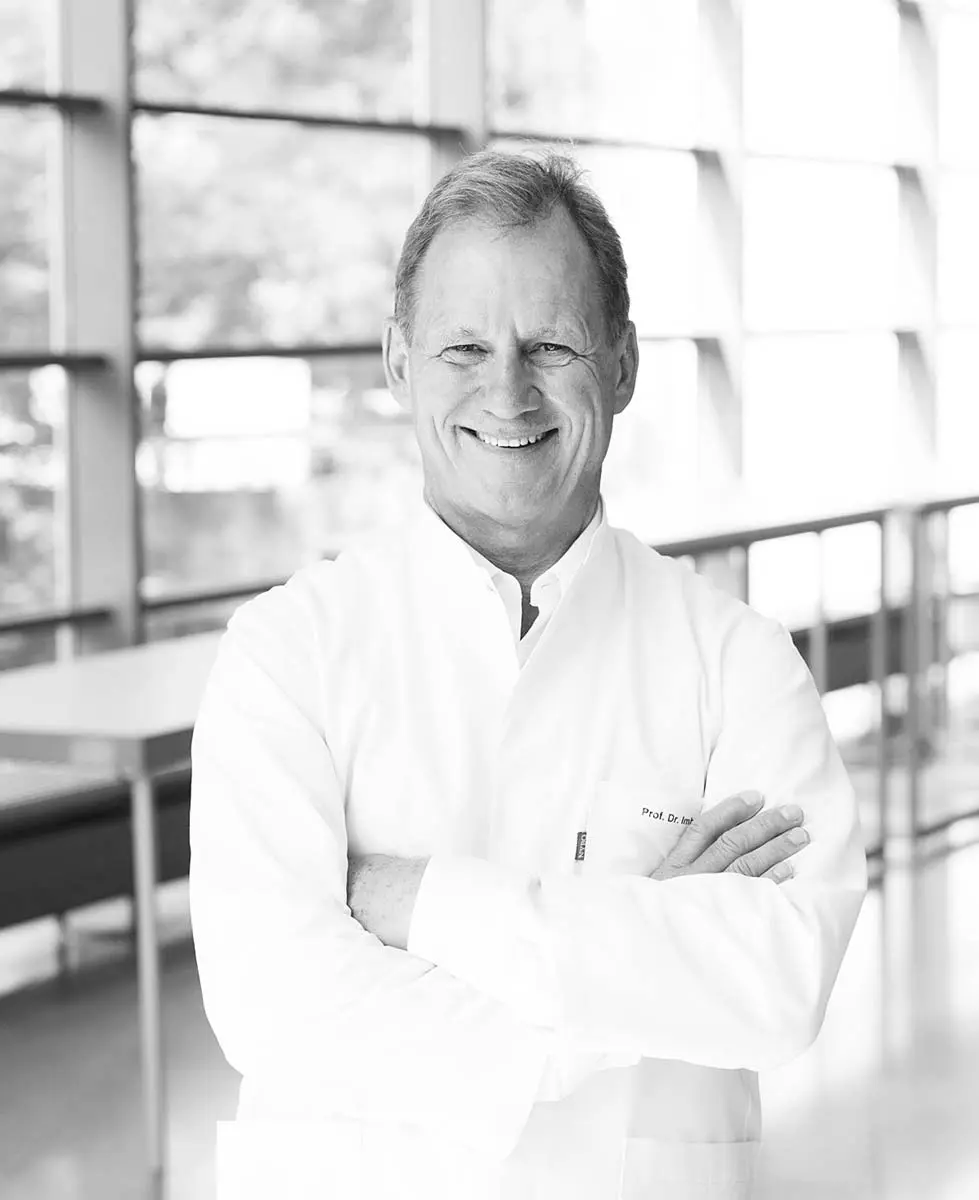
© Karolina Grabowska
December 7, 2023
Robert Emich
- Health
- Interview
Where health becomes a luxury
Interview with a health expert who oscillates between worlds of utmost wealth and deepest poverty

© Karolina Grabowska
December 7, 2023
Robert Emich
Interview with a health expert who oscillates between worlds of utmost wealth and deepest poverty
Professor Dr. Andreas B. Imhoff is one of the world's most renowned experts in the field of orthopedics . For more than 25 years, the native Swiss led the Department and Polyclinic for Sports Orthopedics at the University Hospital rechts der Isar in Munich.
The specialist has performed almost 40,000 operations throughout his career - and has treated numerous prominent patients, including the President of Egypt, the King of Malaysia, and famous athletes like Miroslav Klose, Bastian Schweinsteiger, or Jérôme Boateng.
Last year, at the age of 70, he transitioned into a rather turbulent retirement. He now shuttles between worlds of absolute medical prosperity and healthcare in dire poverty, working as a consultant in places like Dubai, Cairo, and India, and supporting the charity "The Little Pyramid" in Luxor, which he and his wife support.

Professor Dr. Andreas B. Imhoff
It seems as if we are living in a time of contrasts: On one hand, it is said "Health is the new luxury," while on the other hand, there is a demand that "Health should not be a luxury" - so what is really true?I'd say both. Not only here in Germany do we live in a two-tier society when it comes to health services. I've just returned from a conference in the USA.
When we compare what is standard for us, patients there can only dream of it, or have to pay a lot of money to get treatment, which is covered by insurance here. In any case, it is not the case that someone with greater financial means automatically gets better medical care.
What do you mean by that? Isn't a more expensive doctor also a better doctor?
One has to differentiate and first look at what is actually expensive: Is it the doctor himself or perhaps rather the treatment, the technical equipment of the clinic or practice with the most modern devices, which also have to be paid for. If I can achieve better, more accurate, and faster diagnostics with their help, I would not call that luxury.
As far as personal medical performance is concerned - that is, professional medical quality - in my opinion, it cannot really be read from the fee note. I experience this myself again and again.
In your role as a consultant?Yes, also in this case. For example, in Dubai, where money really doesn't matter. There's a brand new orthopedic clinic with 40 beds and 4 operating rooms, a Royal Suite and VIP rooms, with all the imaginable latest equipment one could wish for. Financed by a sheikh, a private facility, but anyone can go there. Yet there are no patients.
How can that be?Because the professional medical qualifications of the staff leave something to be desired. It's no secret that the Emirates are considered an El Dorado for adventurers from all over the world and professions. It's enticing for some doctors as well.
The lure is big money and there are no taxes. Today, the United Arab Emirates has 11 million inhabitants, of which 10 million are so-called expats, i.e., foreigners, and only about one million are locals. They don't have to work. And because they don't have their own experts, they bring in doctors from abroad.
For example, you?My primary task is to advise on improving professional medical standards – that is, training and quality management. But also recruiting truly competent staff and a lot of public relations work so that patients find out: Now it works better.
We are now also setting up a large training laboratory in Dubai with different stations where staff can practice and we will conduct further training.
For years, you have also been very active in Egypt. How does your work differ in these two countries?There are worlds apart. For almost 25 years, together with my wife, I have been supporting the aid organization 'The Little Pyramid' in Luxor. This organization takes care of the poorest of the poor, especially children. In Egypt, it is still the case that women who give birth to a crippled child are rejected by their husbands along with the children. Because there is no state social system, they face absolute nothingness. Even the smallest medical treatment is indeed a luxury.
And how does your support work?We have established our own therapy and social center in Luxor. The association, which is financed solely by donations, is officially recognized as an NGO in Egypt. It now supports 300 families.
There is comprehensive medical care with its own specialist staff, prostheses, wheelchairs, orthopedic technology, physiotherapy for disabled children. But we also support school and vocational training, especially for girls and their mothers. It is not only about enabling women to lead their own lives, but also about human dignity and self-confidence.
Which sometimes leads to bizarre situations. One of the girls we support has successfully completed her training as a nurse with flying colors. She is now standing on her own two feet. She would so much like to marry and start a family. But she finds no man, because women who work and earn their own money are still suspect to men in southern Egypt.
Further information, donations and sponsorship registration via: die-kleine-Pyramide.de